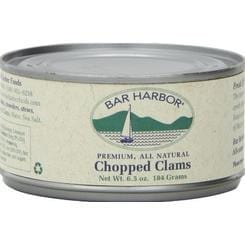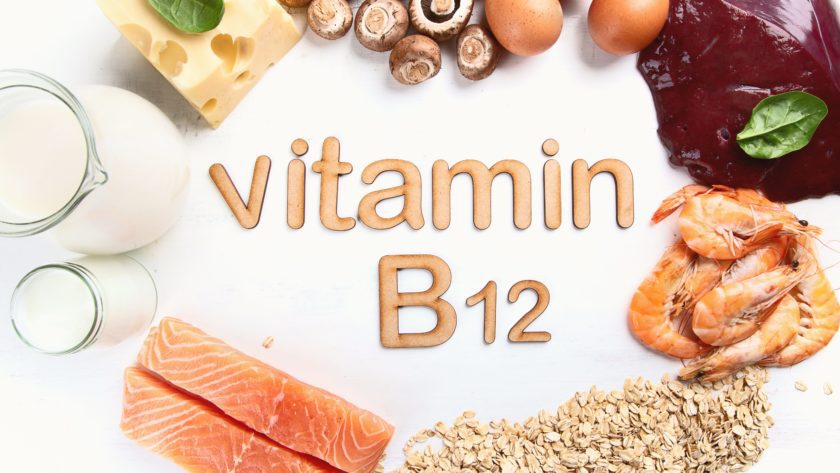UPDATE: Did you ever think being deficient in one small vitamin could cause a lot of damage? Unfortunately, it’s true. Vitamin B12 deficiency and borderline deficiency are relatively common — especially among older adults. B12 is often dismissed as an issue for vegetarians and vegans since B12 is only found in animal products like eggs, meat, shellfish, and dairy, but meat eaters need to be aware as well.
Vitamin B12 (cobalamin) is a powerhouse and one of eight important B vitamins. It’s an essential vitamin that plays a key role in:
- Making DNA (the genetic material found in each cell)
- Proper neurological function (maintaining healthy nerve cells)
- Red blood cell formation
- Normal functioning of the nervous system (brain, spinal cord, nerves, and sensory organs)
Sign and Symptoms: It Can Be Hard to Recognize as a B12 Deficiency
A B12 deficiency can sneak up slowly, but can also appear and intensify quickly. Since there are a multitude of symptoms, the condition is often overlooked and diagnosed as something else. Early detection and treatment are critical. Consult your physician for a blood test to confirm a B12 deficiency, so you can begin treatment immediately. Symptoms include:
- Numbness or tingling (“pins and needles” sensation) in the hands, legs, or feet
- Shaky body movements
- Problems with balance (difficulty walking or staggering)
- Fatigue/exhaustion (why it’s nicknamed the energy vitamin)
- Dizziness
- Weight loss
- Constipation or diarrhea
- Nausea and vomiting
- Abdominal bloating and gas
- Sore, swollen, red tongue; mouth sores
- Depression
- Confusion/brain fog/memory loss*
- Yellowed skin (jaundice) or pale skin
- Rapid heartbeat
*Unexplained cognitive decline should be tested for B12 deficiency. To confirm that you are low in B12, you’ll need a blood test.
Consequences of B12 Deficiency
- Severe neurologic damage, such as confusion; difficulty thinking, concentrating and reasoning; memory loss, Alzheimer’s
- Nerve damage
- Bone loss
- Incontinence (bowel and bladder control)
- Loss of taste and smell
- Deep depression
- Paranoia, hallucinations, or delusions
- Shortness of breath, mostly during exercise
- Anemia — B12 is the necessary nutrient to make healthy red blood cells. Without sufficient red blood cell (anemia), you lack hemoglobin. Hemoglobin, a protein, is a vital component of living as it carries oxygen from your lungs to your tissue cells throughout your body.

Why You Need B12 for Exercise
Vitamins and minerals play an important role in your ability to convert fuel from the food you eat into usable energy at the cellular level. Your body requires oxygen (from the amount you inhale) and B vitamins to make this chemical conversion. Without a sufficient amount of B12 and B9 (folate), you will not be able to produce enough energy which will compromise your endurance performance.
Who’s at Risk?
If you don’t consume enough B12 (through supplementation or the foods you eat) or can’t absorb this vitamin no matter how much you take in, you are at risk of developing a B12 deficiency. Ask your doctor to check your B12 level (blood test) if you:
- Use commonly prescribed heartburn drugs* that reduce stomach acid, such as a proton-pump inhibitor (e.g., Nexium, Prilosec or Prevacid) or a H2 blocker (e.g., Pepcid, Tagamet or Zantac). Stomach acid is needed to absorb B12. Vitamin B-12 is bound to protein in food. To release it, it must be broken down by the enzymes and acids in your stomach. If you suffer from acid reflux and are on a regimen of acid-reducing medication, i.e., a proton-pump inhibitor (PPIs) and histamine 2 receptor antagonists (H2RAs), be aware that it could increase your risk of B12 deficiency.
- Are over 50 years old — You produce less hydrochloric acid in your stomach as you age. Known as “atrophic gastritis”, this condition affects 10-30% of older adults. Seniors also have poorer appetites and have problems with malnutrition and malabsorption.
- Take metformin (a diabetes drug). This drug can interfere with your body’s ability to absorb B12.
- Are a vegetarian/vegan — Vegans eat no animal products which are the primary source of dietary B12. Plants don’t make B12.
- Have had stomach stapling or other gastrointestinal surgery which removes certain parts of your stomach or small intestine.
- Have a condition that interferes with the absorption of food (e.g., celiac disease or Crohn’s disease).
- Are a heavy drinker: B12 is stored primarily in the liver and alcohol can impair liver function. Alcohol consumption drains stores of essential nutrients, like B12. Drinking a few drinks each day can irritate the stomach lining (gastritis) which can lead to low stomach acid.
Cardiac patients often take medications, such as calcium channel blockers (CCBs) or beta blockers, that weaken the muscle that closes off the esophagus (the lower esophageal sphincter) causing heartburn and other GERD symptoms. It is not uncommon to take a heartburn drug if taking these heart medications that treat high blood pressure, angina, abnormal heart rhythms, and cardiomyopathy.
If you’ve been taking antacids for some time, consider asking your doctor whether you still need to be on an acid-reducer or if your dose can be reduced. Also ask if you should be screened for B12 deficiency.
Calcium Channel Blockers, such as:
- Amlodipine (Norvasc)
- Diltiazem (Cardizem LA, Tiazac)
- Felodipine
- Isradipine (DynaCirc CR)
- Nicardipine (Cardene SR)
- Nifedipine (Procardia, Procardia XL, Adalat CC)
- Nisoldipine (Sular)
- Verapamil (Calan, Verelan, Covera-HS)
Beta blockers, such as:
- Atenolol (Tenormin)
- Bisoprolol (Zebeta)
- Carvedilol (Coreg)
- Metoprolol (Lopressor, Toprol XL)
- Nadolol (Corgard)
- Propranolol (Inderal)
Food Sources of Vitamin B-12
Good sources include fortified foods and animal/dairy products, such as:
 Clams, 3 oz. – 34.2 mcg (over 14 times the recommended daily intake or 2.4 mcg)
Clams, 3 oz. – 34.2 mcg (over 14 times the recommended daily intake or 2.4 mcg)- Sirloin steak, 6 oz. – 5.0 mcg
- Salmon, 3 oz. – 4.9 mcg
- Trout, 3 oz. – 4.2 mcg
- Nutritional yeast, 1 tablespoon* – 2.4 mcg
- Yogurt, 8 oz. – 1.4 mcg
- Milk, 8 oz. – 1.0 mcg
- Swiss cheese, 1 oz. – 0.9 mcg
- Egg – 0.6 mcg
- Breads, cereals, or other grains fortified with vitamin B12
Vitamin B12 can be supplemented by liquid, transdermal patch, nasal spray, injection or oral supplements.
*UPDATE: 2 tablespoons of the Bragg nutritional yeast seasoning equals 15 mcg of B12.
Karen’s Fit Tip: Consult with your physician regarding B12 supplementation if you are at risk for a deficiency. Eat fortified foods if you are over age 50 or a strict vegan.
Since 10% to 30% of older people do not absorb vitamin B-12 efficiently from food, consider eating foods fortified with B12 to meet the RDA or take a vitamin B-12 supplement if you’re over 50 years old. Since there is no tolerable upper limit for B12 (your body excretes what it doesn’t absorb), for those over 50 who may not eat animal products and due to an increased risk of poor absorption, up to 1,000 mcg of B12 may be recommended.
9.21.14





